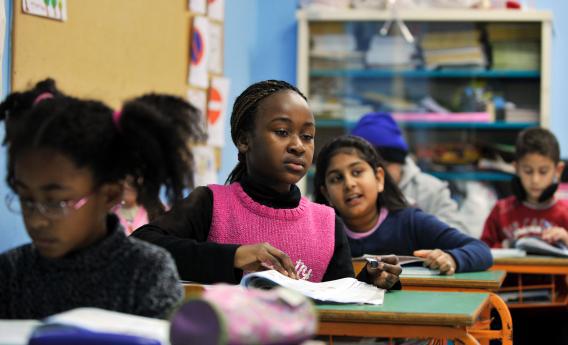In the rapidly expanding field of online education, no one has matched the success of Salman Khan. After he started out tutoring his nephew online, the former hedge fund analyst built up Khan Academy, which has received accolades from Bill Gates and others—but also the ire of teachers who see Khan as a threat to their jobs, a crappy educator, or both. Since starting Khan Academy in 2008, the 3,000-plus short video lectures have racked up more than 160 million hits on YouTube and earned Khan a place on this year’s Time 100 list (plus Slate’s 2011 “Top Right” thinkers roster).
Few have noticed, but a brilliant teachable moment is currently taking place in the annals of Khan Academy. It started with John Golden and Dave Coffey, two math teachers who presumably are not among Khan’s well-heeled supporters. Through a video they posted to YouTube—the same platform that launched Khan—they have raised some important questions around what role teachers could play in critiquing and improving the online resources that land in their classrooms.
In their low-tech, Mystery Science Theater 3000-style video (below), Golden and Coffey spend roughly 11 minutes commenting on a Khan Academy video about multiplying and dividing positive and negative integers. It’s not smash entertainment, but the teachers solidly critique small missteps that Khan makes during his tutorial: putting a positive (“+”) sign in front of some positive numbers but not others, for example, or not citing his sources.
The errors highlight a blind spot that plagues many Khan Academy lectures: Khan is both brilliant and talented, but he doesn’t know much about pedagogy, the science of teaching information effectively.
The video filtered up through the ranks of ed bloggers to Justin Reich’s blog in the trade publication Ed Week, and within five days of going up on YouTube reached Salman Khan. To his credit, Khan took down his original video and released two new, better lectures in its place within two days. He also sent a comment to Reich saying that he appreciates the feedback.
Regardless of whether you think Khan Academy (or any online platform or resource, for that matter) belongs in the classroom, you can’t argue with that speed and adaptability. Textbooks, which often contain small errors, take months or even years to update; this lecture was overhauled in a matter of days.
Concerns about the quality of education technology and online learning—many of which were outlined yesterday on Slate in this piece about technology and math by Konstantin Kakaes—are rampant. So it’s particularly fitting for teachers to use the Internet to have their say and for developers to take this feedback as valuable information.
Now, a group of education bloggers are launching a competition to help spur more teachers to engage with and critique Khan Academy. Khan—who seems game— is about to be peer reviewed by any desiring teacher with access video equipment and the ability to upload. (There are two entries already.)
